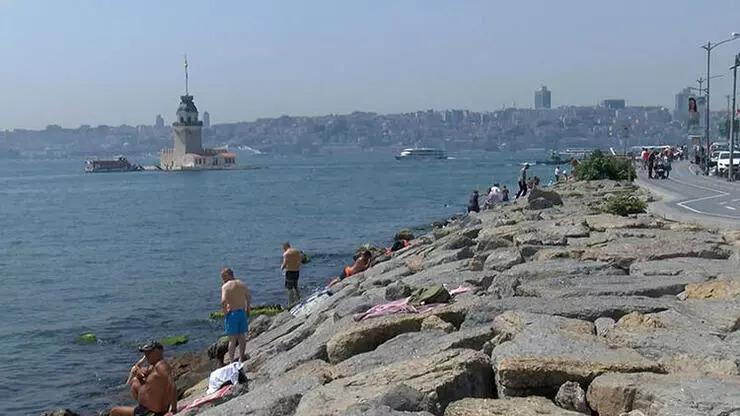
Extreme heat waves have led the temperature of the Marmara Sea to spike significantly, causing the oxygen levels in the sea to decline and gravely impact the marine ecosystem, says an expert.
While the temperatures continue to intensify with the effect of the El Nino phenomena, Prof. Dr. Mustafa Öztürk, former undersecretary of the Environment, Urbanization and Climate Change Ministry, pointed out that the seawater temperatures in Europe are currently 5.1 degrees Celsius higher than normal, along with a 2-3 degrees spike in the Marmara Sea as well.
Oxygen deprivation in the Marmara Sea is abnormally increasing around the seabed, not directly because of the extreme temperatures but because of the heat accelerating the pollution in the water, the professor said, warning that the sea is slowly starting to emit carbon dioxide into the air.
Emphasizing that if the deprivation of oxygen persists, the waters of Marmara may even start to emit hydrogen sulfide, a highly toxic gas for humans, Öztürk warned authorities to take action about the oxygen levels of the sea.
According to the professor, the temperature increase in the waters has also caused a rise in phytoplankton populations in the seas and oceans for the first time, and Marmara was no exception.
“Ozone and phosphorus pollution in the water causes more phytoplankton to occur with the effect of temperatures. Temperatures reach up to 28-30 degrees around the Aegean, Antalya, Hatay and Adana. Consequently, while dissolved oxygen levels in the waters should normally be around 11-12 mg per liter, this phenomenon causes the levels to decrease to 7-8 mg/liter. It also affects the marine ecosystem.”
Meanwhile, prominent meteorologist Dr. Orhan Şen warned that the staggering heatwaves are determined to continue until mid-September, with periodical ups and downs in the temperatures.
Şen pointed out that the negative effects of the sun's harmful rays are felt more with the heatwaves and the risk of developing skin cancer increases especially in light-skinned people.
According to the latest assessments, the heat wave is expected to continue its effect all over the country, while temperatures are expected to rise up to 3-8 degrees above seasonal norms in Marmara, Aegean and Mediterranean regions, and 1-5 degrees above seasonal norms elsewhere.